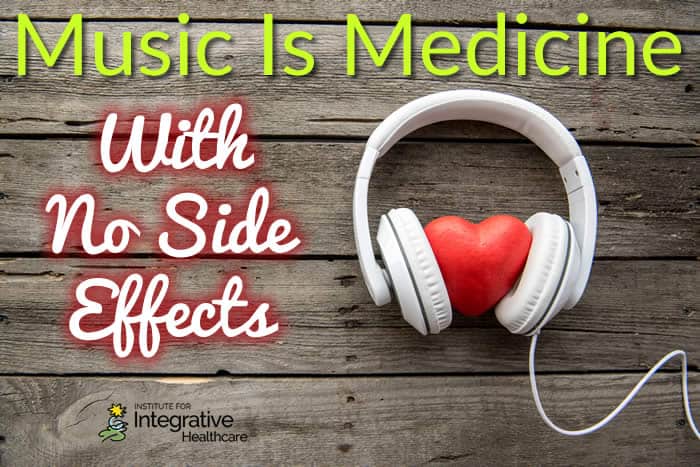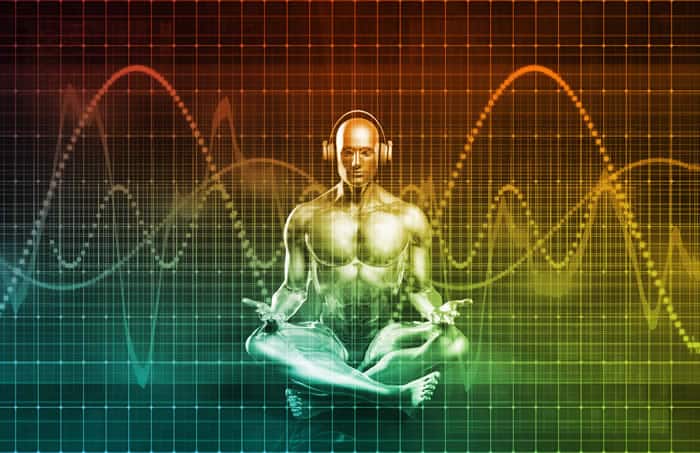

Music can definitely be relaxing. Tempos ranging from 60 to 70 beats have been found to be soothing, because they reflect the similar pace of your heart. A number of clinical studies have shown that music can reduce cortisol levels (the stress hormone), as well as assist in reducing blood pressure and heart rate.
In his article “Our Musical Brain,” Dr. Lars Heslet writes that scientific trials using EEGs, or electroencephalograms, have demonstrated that “the slow rhythms in classical music cause the brain to change from Beta to Alpha activity, and rhythmic music can produce the lowest frequency [Delta] waves.”
- Beta waves, as you may or may not know, are the fastest of the four brain waves and occur when your mind is actively engaged.
- Alpha waves are lower in frequency and tend to be associated with relaxation and daydreaming.
- Theta waves are slower still and are present during deep meditation.
- The slowest brain waves—delta—are present during deep, dreamless sleep.
Melodies, tunes, songs and gorgeous musical instruments are also helpful at blocking ambient noise from one’s consciousness. For example, a study reported on in the journal Adolescence found not only that patients who were exposed to music during or after surgery had less pain and needed less morphine, but also that random noises on the hospital ward were subdued by the music because the mind focuses on the music, thereby becoming less conscious of other noise.
Whether in association with a massage or not, music has the potential to help promote healing. It has been used since the time of the ancient Greeks to calm the mentally ill and, since the invention of the phonograph, at least, to help hospital patients sleep and become less anxious before surgery.
Researchers within the field of psychoacoustics—defined by Mosby’s Medical Dictionary as “the branch of science concerned with the physical features of sound as it relates to the psychologic and physiologic aspects of the sense of hearing in the unimpaired ear”—are investigating the ways in which sound, especially music, can promote healing.
The Case for Binaural Beats
Much of this work involves the use of beat frequencies to influence brainwaves; in particular, binaural beats. Normally, when your brain is confronted with binaural beats—two pure tones or sine waves of similar frequency—coming one to each ear, it uses the phase difference between the two beats to provide the listener with directional information. But when such beats are received through headphones or speakers, your brain perceives them as a fluctuating rhythm. Numerous researchers have shown such rhythms to be effective in producing beneficial brain-state changes, from changes in focus and levels of awareness, to pain management and treatment of alcoholic depression.

Dr. Andrew Weil suggests that, because “stress and deep-seated tension are primary or aggravating causes of most cases of illness and frequently obstruct the body’s effort to return to a state of health,” using binaural beats to alter brainwave frequencies can help to “keep the mind from interfering with the healing system.” Working with a team of brainwave experts and musicians, Dr. Weil has created “psychoacoustically designed music” to promote the body’s own tendency to restore health.
A piece of music I would play during my massage sessions incorporated symphonic music with Tibetan bowls and other Asian instruments. This is Dr. Weil’s “Symphony of Brainwaves.” There are binaural beats incorporated into the music. In addition to having played “Symphony of Brainwaves” for my clients, I also frequently used this piece of music to help get me through stressful and scary doctor and dentist procedures. It kept me calm and relaxed.
The Positive Effects of Sound on Your Body
The study of the effects on the body of sound, including music, is a relatively new field so those looking for scientific proof of cause and effect may be disappointed. Part of the problem is that, as Dr. Weil says, “we know less about this potential of the body [to heal itself] than we should because conventional medicine is focused so much on disease. Doctors do not collect and study cases of healing.”
But the body of evidence, if you’ll excuse the pun, is growing that supports the positive effects of sound on healing. And even if music only helps you relax psychologically, it is clearly a copacetic accompaniment to the physical relaxation you experience during massage—and even while performing massage on your clients.











